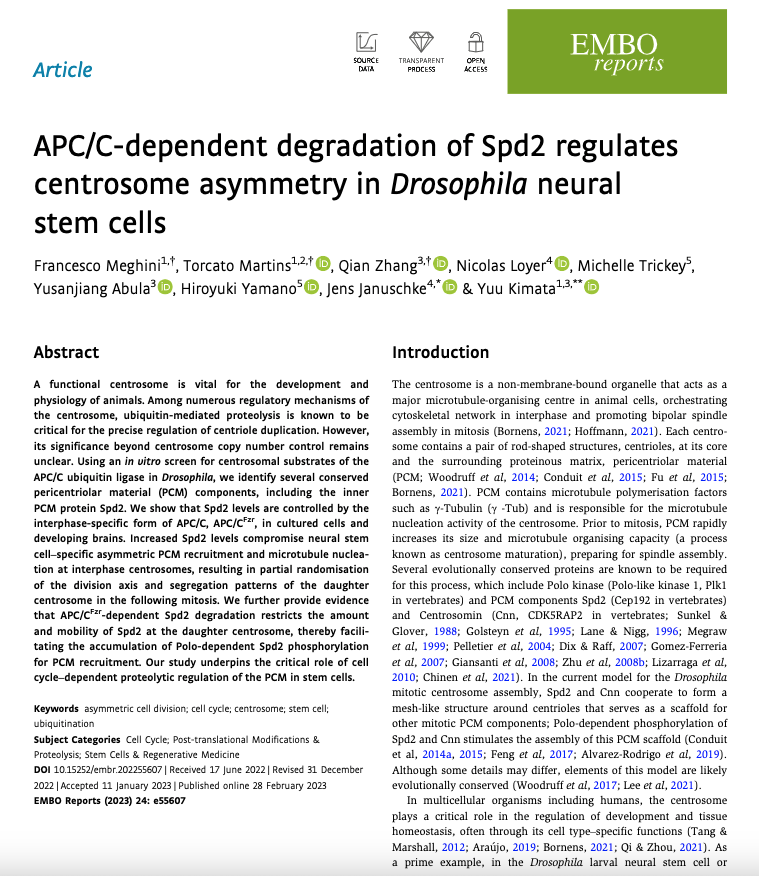We are excited to share our recent paper published in EMBO Reports on the regulation of centrosome asymmetry in Drosophila neural stem cells.
Centrosomes play a critical role in the development and physiology of animals, and our study sheds light on the role of ubiquitin-mediated proteolysis in the precise regulation of centriole duplication and beyond.
Using an in vitro screen for centrosomal substrates of the APC/C ubiquitin ligase, we identified several conserved pericentriolar material (PCM) components, including the inner PCM protein Spd2. We demonstrated that Spd2 levels are controlled by the interphase-specific form of APC/C, APC/CFzr, in cultured cells and developing brains.
We found that increased Spd2 levels compromise neural stem cell-specific asymmetric PCM recruitment and microtubule nucleation at interphase centrosomes, resulting in partial randomization of the division axis and segregation patterns of the daughter centrosome in the following mitosis. Our study further provided evidence that APC/CFzr-dependent Spd2 degradation restricts the amount and mobility of Spd2 at the daughter centrosome, thereby facilitating the accumulation of Polo-dependent Spd2 phosphorylation for PCM recruitment. Our findings highlight the critical role of cell cycle-dependent proteolytic regulation of the PCM in stem cells, and contribute to our understanding of the mechanisms that underlie proper centrosome function.
This work was done by our lab in collaboration with Jens Januschke’s lab at the University of Dundee. Amanda is one of the first authors with Francesco and Torcato.

